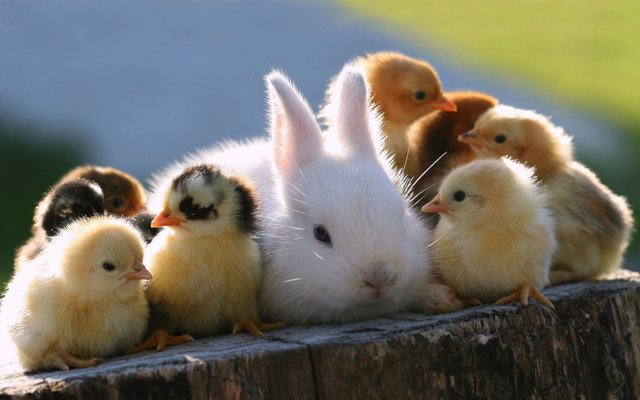Images of baby animals reduces people's appetite for meat say researchers, who found that the effect is much stronger for women than for men.

Animal rights groups often use images of lambs and calves but there has been little evidence for their effectiveness in their campaigns.
Psychologists Dr Jared Piazza and Dr Neil McLatchie of Lancaster University in the UK with Cecilie Olesen of University College London exposed men and women to images of calves, baby "joey" kangaroos, piglets and lambs and tested whether this affected their desire for meat.
"We found that both men and women find baby farmed animals to be cute and vulnerable, and experience feelings of tenderness and warmth towards them."
But these positive feelings affect men and women differently, with men experiencing much less reduction in their appetite for meat as a result.
"Feeling tenderness towards a baby animal appears to be an oppositional force on appetite for meat for many people, especially women."
Dr Piazza said this could be because women still often assume the role of caregivers -- even today and even in contemporary western society.
"Our findings may reflect women's greater emotional attunement towards babies and, by extension, their tendency to empathise more with baby animals. Also, meat is associated with masculinity and images of tough men who consume meat for muscle building protein, along with prehistoric ideas of the male as hunter. Women have a much more ambivalent attitude towards meat and their identity is not bound up with it in the same way."
He said the study implied that animal advocacy groups would be wise to focus on images of cute baby animals in their publicity, particularly when focused on young women.
The researchers first presented participants to an image of a cooked meat dish paired with an image from either a familiar animal (calf or bull) or exotic animal (baby or adult kangaroo). The participants were told the meat came from the animal depicted.
"We found that men and women differed in how appetising they considered the meat dishes when the meat was paired with a baby animal image, with women's appetite for meat much lower than men's appetite, regardless of whether the meat was from a familiar or exotic source."
A follow up study asked people to rate their appetite for meat when presented with an image of either a calf, cow or no animal.
The meat dish became less appetising after people had looked at images of the calf while there was little difference in terms of whether they had previously looked at images of the cow or no animal at all.
Overall, the effect of looking at an image of a baby animal was stronger for women compared to men.
The researchers say this is in line with previous research showing the women are more responsive to cute babies, and more ambivalent about meat-eating than men.
"Our results highlight a tension within some omnivores between caring for baby animals and appetite for meat."
Journal Reference:
Jared Piazza, Neil McLatchie, Cecilie Olesen. Are Baby Animals Less Appetizing? Tenderness toward Baby Animals and Appetite for Meat. Anthrozoös, 2018; 31 (3): 319 DOI: 10.1080/08927936.2018.1455456
Hi! I am a robot. I just upvoted you! I found similar content that readers might be interested in:
https://www.sciencedaily.com/releases/2018/08/180801115254.htm
Downvoting a post can decrease pending rewards and make it less visible. Common reasons:
Submit